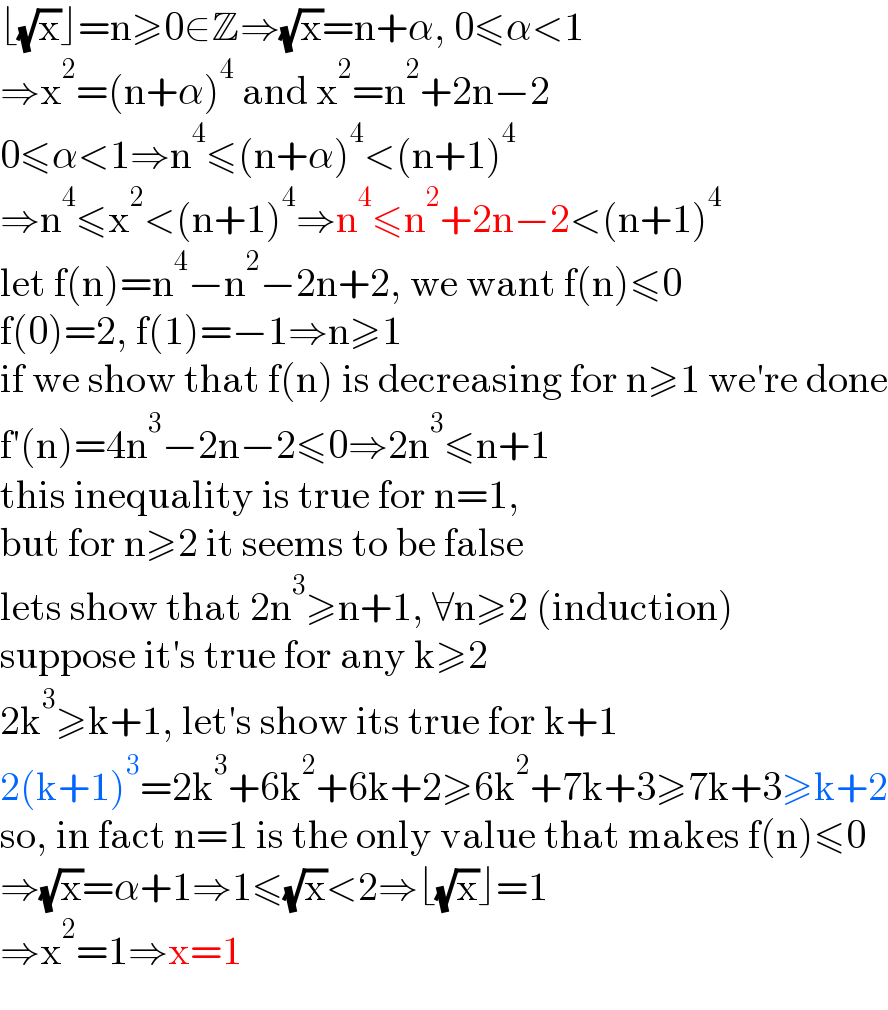
Question and Answers Forum
Question Number 168244 by mnjuly1970 last updated on 07/Apr/22

Answered by MJS_new last updated on 07/Apr/22

Commented by mnjuly1970 last updated on 07/Apr/22

Answered by floor(10²Eta[1]) last updated on 07/Apr/22

Answered by mr W last updated on 07/Apr/22
![let t=(√x) t^4 =[t]^2 +2[t]−2=integer ⇒t is also integer ⇒[t]=t t^4 =t^2 +2t−2=0 (t^2 +2t+2)(t−1)^2 =0 ⇒t=1 is the only integer solution ⇒(√x)=t=1 ⇒x=1](Q168301.png)
